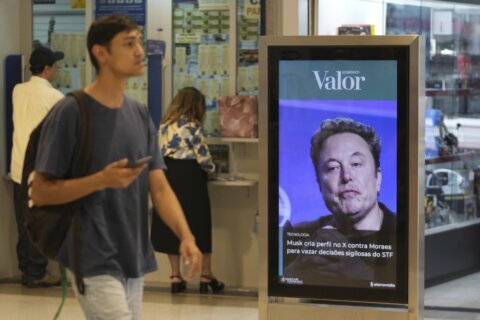When children struggle with learning differences, parents often look to private schools because they offer smaller classes and more individualized attention.
While education experts say public schools have a legal obligation to educate all children, and that a well-funded district can have more resources and a better-trained staff, private schools that specialize in teaching children with learning disabilities can offer excellent support.
“The choice is an individual situation that depends on what the needs of the student are and what the district has to offer,” says Andrew Kavulich, one of the founders of Decoding Dyslexia, a national advocacy group.
Private schools for students with learning disabilities are different from traditional private schools. They specialize in teaching children with dyslexia, attention deficit hyperactivity disorder and other challenges, offering trained staff and customized programs. They charge tuition that can run to tens of thousands of dollars a year in some cases, but some families are eligible for public funding.
“Many private and charter schools that accept students with learning disabilities also provide instruction and supports for students who qualify for services under other classifications, such as autism spectrum disorders, cognitive disabilities, emotional and behavioral disorders, or speech and language impairment,” says Sheldon Horowitz, senior advisor of strategic innovation, research and insights at the National Center for Learning Disabilities.
Assessing Your Child’s Needs
Roughly 33% of the 7.3 million students who receive special education services in U.S. public schools have a learning disability, according to the National Center for Education Statistics.
Private schools for children with learning disabilities have some clear advantages, Horowitz says. They are often smaller, with low student-to-teacher ratios. In contrast, public schools often are larger, with less opportunity for individualized instruction and support.
[READ: Private School vs. Public School.]
But, Horowitz says, “size alone has not been consistently linked to quality or benefit in studies of student performance. Some students will clearly benefit from the opportunity to interact more closely with faculty and peers, but for others, it seems not to be as much of an issue.”
In addition, if a family chooses to place their child in a private school for learning disabilities, they may not have the same legal protections they receive in a public school. Public schools are required by law to create an Individualized Education Program, commonly known as an IEP, for students who meet the 13 disability categories under the Individuals with Disabilities Education Act. The program includes annual goals, success metrics, accommodations and a plan for his or her education. The IEP also guides where schooling will take place, participation in state and district-wide tests and other important details.
In contrast, students attending a private school that specializes in learning differences might receive a service plan or ISP, sometimes called an Instructional Services Plan or Individual Service Plan. While the goal may be similar to an IEP, the documents are different in important ways. “A service plan tends to be less comprehensive,” according to Understood, a nonprofit dedicated to providing parents with credible information on learning differences.
What Private Schools Offer
Still, accommodations in some cases may be better in a private school that specializes in learning differences. While public school teachers are governed by strict certification guidelines set by states, most private schools for learning disabilities exceed those requirements. Many will also provide specialized training and mentoring in particular instructional approaches, such as structured literacy, a methodology in which concepts and skills are taught in a logical order and fully explained.
In addition, a public school may be limited in the accommodations it can provide by virtue of the number of students it serves and the large range of needs across the student population. A private school may be able to incorporate a wide range of accommodations into a school program because most of the students enrolled require similar types of support.
“At our school, every teacher is trained as a language specialist, from the physical education teachers to the art teachers to the science teachers,” says Deborah Peters, executive director and co-founder of The Cambridge School in New Jersey, which serves children with dyslexia and other learning differences.
“Kids are imbued with the skills they need all day to decode and read from the time they walk into the building to the time they walk out,” she says. “Public schools can’t do that. They may pull a child for … tutoring, but it is not enough. They can’t address students’ reading needs all day long.”
And then there is the issue of stigma. Poor academic performance is still often misunderstood, Horowitz says. In a public school, students with disabilities sometimes receive instruction in separate classrooms, “which can reinforce the sense of ‘otherness,'” he says. In a private school, students are given opportunities to “understand and accept their disabilities in ways that are empowering,” Horowitz says.
Addressing the Cost of Private School
The cost of private schooling is no small matter, but there can be help available. When a public school can’t meet a child’s education needs, the school district will pay for private schooling in some cases. But that can be a complicated road because districts sometimes fight against what is known as a “private placement.”
[READ: Is Private School Tuition Tax Deductible?]
“Do districts have an obligation to serve students with learning disabilities? Yes,” Horowitz says. “Do they have an obligation to provide a private school placement? No.”
Federal law requires public school districts to provide services to any student suspected of having a disability. Under the law, children can undergo screening and evaluation, at public expense, to determine eligibility for specialized instruction and support. If eligible, public schools must provide a “free and appropriate education in the least restrictive environment.”
“There is no requirement for public schools to arrange and pay for a private placement, but if unable to meet the needs of a child, they may do so,” Horowitz says.
Private schools that specialize in learning differences can cost a family as much as $50,000 a year if they are not getting a private placement from their school district. But in some cases, Kavulich says, families may decide the cost is worthwhile.
“There is much more knowledge, awareness and professional development,” he says. “There are a lot of great things going on as far as teacher training around the country. But there is still a lot of work to be done.”
Private Schools for Learning Disabilities
For parents interested in investigating private school options, here are several well-known private schools that specialize in learning disabilities:
— AIM Academy in Conshohocken, Pennsylvania.
— Forman School in Litchfield, Connecticut.
— Eagle Hill School in Greenwich, Connecticut.
— The Southport School in Southport, Connecticut.
— Landmark School in Prides Crossing, Massachusetts.
— Currey Ingram Academy in Brentwood, Tennessee.
— Westmark School in Encino, California.
— Charles Armstrong School in Belmont, California.
— Shelton School in Dallas, Texas.
— Atlanta Speech School in Atlanta, Georgia.
Searching for a school? Explore our K-12 directory.
More from U.S. News
How Much Does Private School Cost?
How Kids Can Get Dysgraphia Help in School
Finding the Best ADHD Boarding Schools
Exploring Private Schools for Learning Disabilities originally appeared on usnews.com







